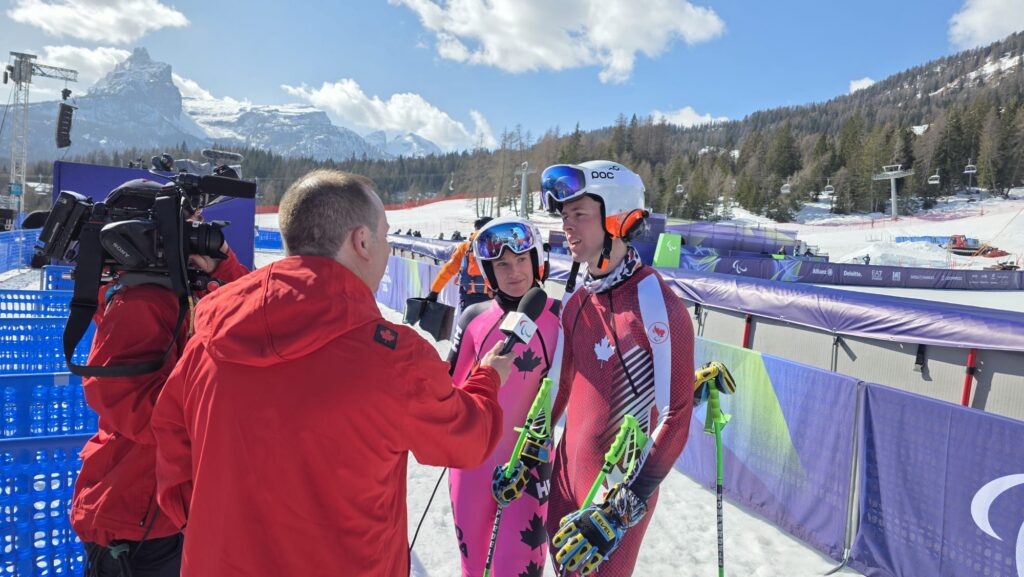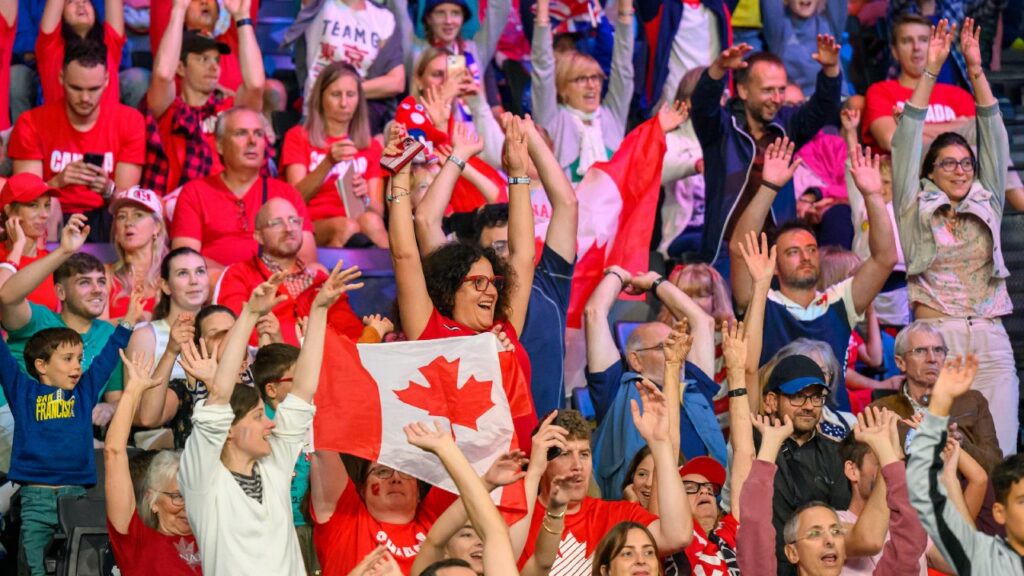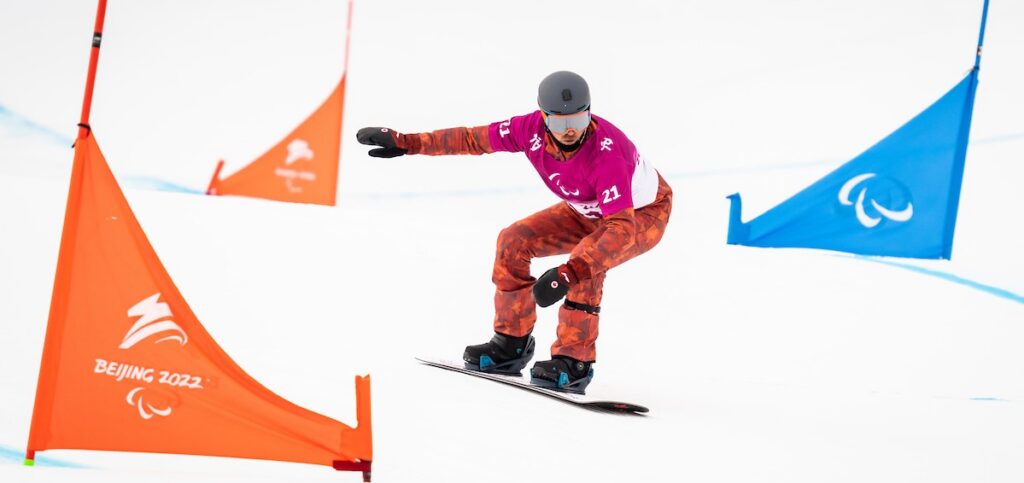Health Matters: Dr. Steven Dilkas navigates two Paralympic Games in the COVID era
Team doctor for wheelchair curling team helped athletes return to sport

Combining a passion for sport with a belief that physical activity and exercise is a form of medicine, Dr. Steven Dilkas is familiar with guiding his patients toward movement.
In 2009, he began working with patients recovering from amputations and significant musculoskeletal injuries at Toronto’s West Park Healthcare Centre.
“Since then, I’ve been working with people with different impairments and have gained a unique understanding of how these impairments can impact a person on all levels,” he says.
Not long after, he discovered Para sport, working with Para athletics and wheelchair rugby on their classification processes, before volunteering for the Ontario ParaSport Games in 2012.
“After that, I was hooked!”
“I see Para sport as a continuum of the rehabilitation and recovery process, and an opportunity to break down barriers and perceptions on what is functionally possible,” he adds.
Dr. Dilkas is also as familiar as anyone can be with providing on-site medical care to Paralympians during a global health pandemic.
As the team doctor for both Canada’s men’s and women’s wheelchair basketball teams, he traveled with and supported the teams at the Tokyo 2020 Paralympic Games, contending with daily COVID testing, stringent social distancing restrictions and other anti-virus countermeasures alongside the athletes.
Tokyo 2020 ended up being the biggest Paralympic Games ever with a record number of athletes – a total of 4,403 including 128 from Canada – participating.
One of the largest multi-sport events in the world could have become a “super spreader” event. But it didn’t.
“One of the interesting things that I noticed, and I’ve heard similar feedback from colleagues, was that upper respiratory and other infections were way down in Tokyo from what we usually experience at Games,” Dr. Dilkas says. “I think a lot of this can be chalked up to better hygiene practices and masking, particularly around travel.”
As Canada’s wheelchair curling team doctor, Dr. Dilkas is heading to China for the Beijing 2022 Paralympic Winter Games, now his second Paralympics held under pandemic conditions and restrictions.
While his first-hand experience gained in Tokyo will be invaluable, he points out that there really is no set playbook to holding Games in a time of COVID-19 and its evolving variants.
“Every major Games is unique,” he says. “Certainly the emergence of the infectious Omicron variant changes our planning for Beijing to some degree. The principles around infection control and prevention, however, really remain unchanged.”
But before they can even compete on the largest global stage for Canada, the athletes had to qualify, and COVID-related disruptions impacted typical training and competition plans.
Dr. Dilkas, who is also the Chief Medical Officer for Canadian Sport Institute Ontario, says a lot of consideration and planning had to go into reimplementing safe sport practices.
“Getting athletes back to training and competition in a safe and thoughtful manner is certainly something that has dominated the collective efforts of the high-performance sport community over the past two years,” he says.
Together with colleagues across various sport and medical agencies, return to training protocols and guidelines were developed and best practices for athlete health and wellness were adopted. He credits the collaboration between the Canadian Paralympic Committee, Canadian Olympic Committee, Own the Podium, the Canadian Olympic and Paralympic Sport Institute (COPSI) Network, and National Sport Organization partners for their strategic and scientific-backed approaches to managing the risk while keeping athlete performance top of mind.
“I think we’ve done a pretty good job at putting in place the necessary assessment tools, testing strategies, protocols, medical and psychological supports, and advocacy for vaccinations and high-performance training exemptions required to make this return to sport happen,” he says.
“It has truly been a group effort and privilege to be a part of,” he notes, adding that bringing athletes back to sport took a measured and gradual approach.
“Our priority has always been athlete health and wellbeing,” he says. “With Para athletes, it was not lost on us that some may have underlying health conditions that put them at increased risk of worse outcomes after a COVID infection.”
Dr. Dilkas is confident that the right precautions are in place to ensure the Beijing Paralympic Winter Games can be held as safely as possible.
“We can certainly see the light at the end of the tunnel now, but we can’t let our guard down just yet,” he says.
Health Matters, presented by Pfizer, shares stories of the important team behind the team, supporting the athletes’ health and wellness



"*" indicates required fields
"*" indicates required fields